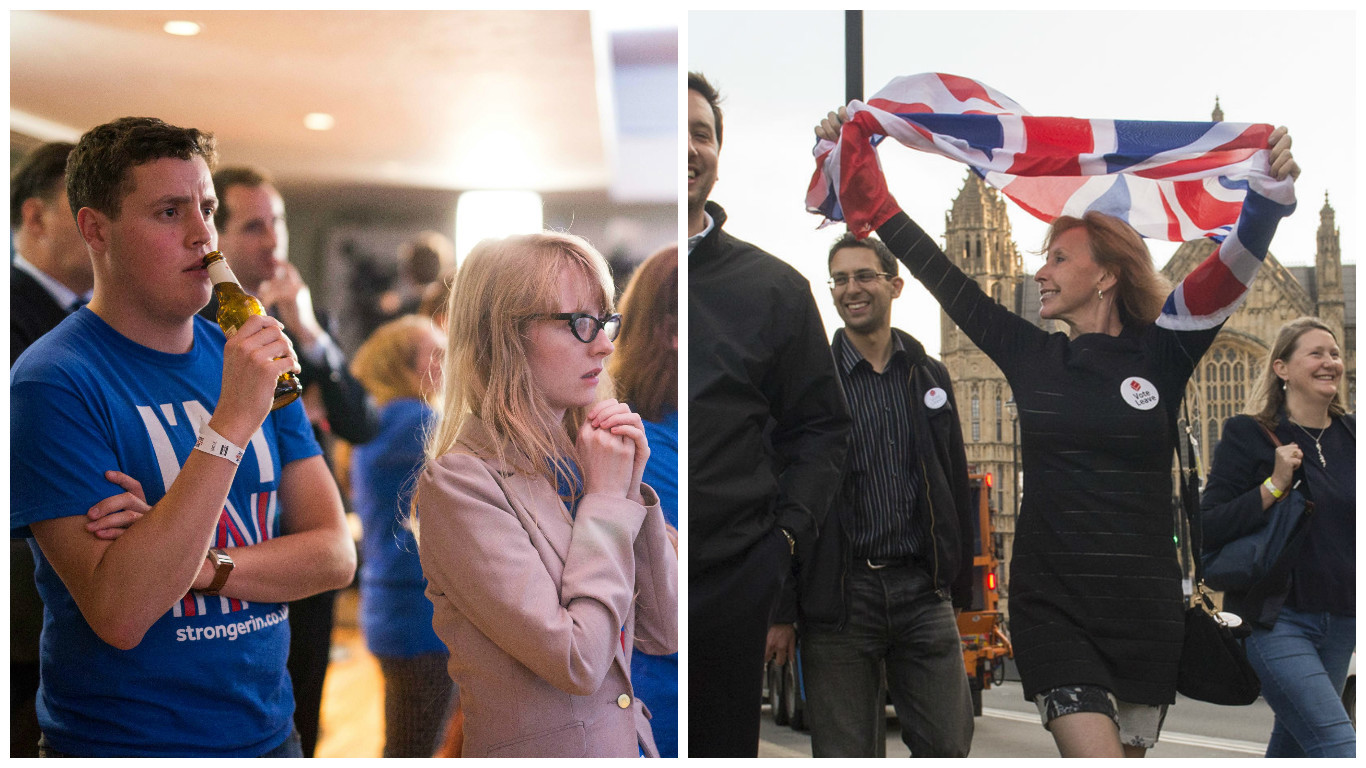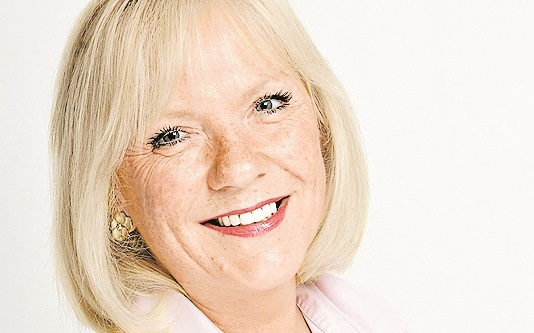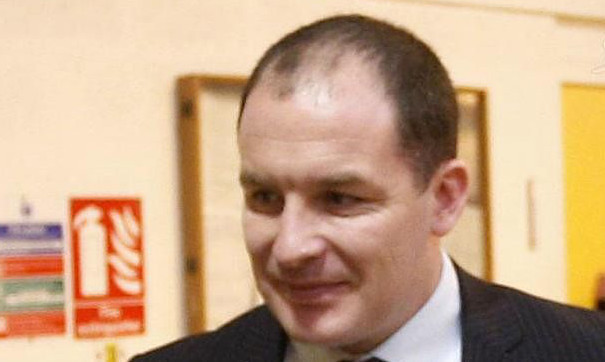
AS the fall-out from the EU referendum continues, we hear from a selection of experts and commentators on how the Leave camp won and the effects of the vote.
Why Leave won and Remain Lost

By Andy Maciver (above), Communications specialist and political strategist
In referendums there has to be a loser, and where there is a loser there must be a failed strategy.
Right? Well, kind of.
The truth of the EU referendum is that neither campaign was particularly effective.
However, the Leave team won and so history will tell us that they ran the better campaign – that’s politics.
There were, for sure, aspects of the Leave campaign that worked well.
The most striking success is that, after the official designation was given to the more moderate Vote Leave outfit, it became well-messaged and disciplined.
Some people did not like Vote Leave’s gravitation to an immigration-based rhetoric, but they gave the message in a disciplined way.
Crucially, they left their party politics at the door, and this unification is the main reason they won both the three-on-three TV debates.
And the presence of Michael Gove, offering intellectual rigour, decency and dependability, was vital – without him, I suspect they’d have lost.
And what of remain? Many say that Project Fear lost them the referendum, but I would offer one defence – all incumbent campaigns, in elections and referendums, must highlight the risks of change.
The key is to do so without going over the top and indulging in fantastic scaremongering.
Ruth Davidson got this spot on, but too many of her colleagues overstepped the mark and they cost votes as a result.
Voters tend to know when they’re being led up the garden path.
A final lesson for the Remain campaign is that they proved themselves to be utterly unable to lay their party politics to one side for the greater good.
Labour remainers, in particular, spent at least as much time during set-piece debates criticising the Conservative government as they did lauding the EU.
Remain didn’t lose for one big reason – rather, for many small ones.
Don’t blame the baby boomers for wanting out
 By Yvonne Bolouri (above)
By Yvonne Bolouri (above)
I HAVE a confession to make.
I am a member of the “Baby Boomer generation. You know, the one that’s being blamed by those who wanted to remain in the EU for dragging Britain, and its young folk, out.
OK, I get it. Honestly I do. There’s no doubt we’ve had it good in many ways and I understand the frustrations of the young who voted overwhelmingly to stay a part of Europe.
I’m 62 and was born the year we finally got rid of ration books. Out of the first six close friends I can think of, ALL voted to leave.
When Britain first joined the Common Market in 1973, I was 19. We had full employment and we weren’t poor.
You could stop one job on a Friday and start another on the Monday morning.
Some of those in my age group (though by no means all) have reaped the benefits of the last few decades with our right-to-buy houses that we snapped up at huge discounts then sold on for vast profits.
Quite a few of us now have big juicy protected pensions to take us through our twilight years.
So I can see why the younger generation, who will never be able to enjoy the same benefits of the boom times, are, to put it mildly, somewhat miffed at us.
I’m sure it seems to them that we’ve enjoyed the good times then happily burnt the bridges behind us while we uncork our champagne.
Judging by the slings and arrows that have been flung our way since Friday’s result, many think that we’re guilty of believing that when we go, we’re taking it all with us.
But it’s not like that. It really isn’t.
We’re not a bunch of selfish fools who are just thinking of ourselves (although there will undoubtedly be people who fall into that category on both sides of the Leave/Remain divide).
This wasn’t all about feathering our own nests while the young can go to hell.
I have kids myself – in their 20s and 30s. I love them and care about the future of the country they live in.
Here’s another confession. On Thursday I walked to my local polling station with the mantra “leave, leave, leave” looping in my head.
But when it came to the crunch, I couldn’t do it and put my cross in the Remain box instead.
At the very last minute, what I wanted to be a protest vote took on a greater significance. Did I really believe that leaving the EU was the way forward? No, I didn’t. I just wanted this country to get its act together on immigration.
And the other reason I couldn’t tick that leave box, was my two daughters. They thought I was off my head if I wanted to break up the union.
But still, it was a last minute U-turn (or should that be EU-turn?) for me.
And I understand why others of my generation and older didn’t change their minds like I did.
When I was young I had only been on a plane only once, from Glasgow to Southampton. Many folk like me had never been abroad and flying anywhere was seen as glamorous and expensive.
These days the young travel abroad widely and relatively often.
My daughters are 38 and 29. One is an author living in Scotland. The other lives and works in London. They have both travelled extensively and lived and worked abroad.
They are clever, savvy and fearless. And they are furious that people of my generation want to take away from them the opportunities they believe we enjoyed.
But I do wish those currently lambasting us for spoiling the party and denying our youngsters the same “gravy train” we had would get it right.
There is no such thing as a land of milk and honey. You just have to take whatever opportunities are available, then work hard and hope for the best.
Ultimately the only thing most of the Baby Boomers who voted Leave are guilty of is wanting our children and grandchildren to be safe.
We want anyone coming to live in this country to be vetted, not waved through willy-nilly.
Isn’t there something basically humane about wanting to lock the doors and raise the drawbridge? To
get back to an era of respect and decency? To make sure all your chicks are safe?
We Baby Boomers really are not, for the most part, selfish, small-minded, mean-spirited bigots who have ruined our children and grandchildren’s futures.
Personally I am so sorry that we are leaving the EU. It’s not the way forward. All I wanted while I was considering a vote to get out was stringent vetting on who gets into our country.
I welcome those who come to stay here, work and make all our lives better. Nationality doesn’t come into it. In fact I am married to an Iranian scientist who has been here for 40 years.
But doesn’t everyone want a safer, better society?
I think the Baby Boomers want that more than most.
Sadly I also fear they may have just shot themselves in the foot.
The Inside Story
 Rachel Wearmouth (above) worked full-time for the Britain Stronger In Europe campaign in the North East and saw the Brexit juggernaut coming weeks before the reality hit the rest of the country. Here she explains what it was like in the Leave heartlands of Gateshead, Tyneside and County Durham, with tales of death threats against MPs, hopelessness and an outright hostility to mainstream politics:
Rachel Wearmouth (above) worked full-time for the Britain Stronger In Europe campaign in the North East and saw the Brexit juggernaut coming weeks before the reality hit the rest of the country. Here she explains what it was like in the Leave heartlands of Gateshead, Tyneside and County Durham, with tales of death threats against MPs, hopelessness and an outright hostility to mainstream politics:
IN the run-up to the referendum I worked full-time for the Britain Stronger In Europe campaign in the North East of England.
It was obvious to all of us that the economic case for the region to stay in the EU was stronger than perhaps anywhere else in the country.
But it was also clear from very early on our core message was falling on deaf ears, and no surprise that 58% of the region wanted out.
Our volunteers were faced with the bitterness, anger and suspicion of the establishment that sits behind that emphatic Leave vote week-in week-out on the streets.
This “save the economy” petition Remain shoved down their throat wouldn’t settle in a region scarred by declining town centres, foodbanks and the country’s highest unemployment rate.
They certainly were not going to stomach it coming from Cameron and Osborne.
The North East has the lowest proportion of foreign-born residents of anywhere in the UK but the fear of immigration is now endemic.
The Leave campaign kindled the fire. Our campaign’s relentless negativity and the Labour leadership’s weak response allowed the flames to spread. People don’t care about employment rights when they would do anything for a few more hours at work.
Tell people for every £1 we put into the EU, the North East gets £10 back in jobs, trade, investment and growth. Tell them the cars made at Nissan will be made somewhere else in Europe if we vote to leave.
The response was always the same: “Well, I have nothing and they are coming to take the rest.”
This deeply damaging narrative has taken hold.
Pat Glass, Labour MP for North West Durham, was pulled from the final day of campaigning after police deemed a death threat made against her to be credible.
In a separate incident, spray-painted across a bridge in Durham last week were the words “Jo Cox deserved it, Durham next”.
People will have had many good reasons for voting Leave. I respect that as part of our democracy.
But there can be no doubt this campaign has divided our communities further.
On Thursday the North East gave the establishment a kicking. Many now fear it will respond in kind.
‘Labour pains’
 By John Park (above), Assistant General Secretary of the Community union and former Labour MSP
By John Park (above), Assistant General Secretary of the Community union and former Labour MSP
The impact of Labour voters in EU referendum wasn’t shaped in the few months of campaigning ahead of the vote; it was forged over many years by those working class people at the sharp end of globalisation.
The take back control message that was deployed so effectively had two strands; immigration – putting pressure on jobs and the NHS – and the ‘unelected elite’ – making decisions in Brussels that we can’t influence. The leave campaign played on people’s fears so effectively that working class voters lined up alongside the likes of Boris Johnston and Nigel Farage.
How did this happen and why have these arguments been able to take hold? The surge in support for Brexit has been fuelled by the inability of politicians to find policies that stop working people suffering the harsher aspects of globalisation.
Job insecurity, low wages and the challenge of finding work are daily realities for an increasing number of working class voters.
Conversely, where the economy appears to working more effectively, people wanted to remain. It’s no surprise that London, a city which has seen real economic benefits from its global connections, voted strongly to stay in the EU.
In Scotland the immigration factor was still felt, but the ‘unelected elite’ factor didn’t have the same impact as in the rest of the UK because Holyrood has given Scotland’s voters a feeling of being able to more easily affect change. They feel far less governed by an ‘unelected elite’; they have a parliament that is closer to the people.
Labour’s failure to connect with its core vote can be traced back to 1997. That Labour government did excellent things to make work pay. They gave us the national minimum wage and improved conditions at work by signing up to the social chapter and giving people a right to paid holidays for the first time.
But it didn’t do enough to support our manufacturing sector in those early years and the impact on the UK industrial and Labour heartlands is still being felt as many of these communities are now fragmented and fragile.
Jeremy Corbyn’s hesitant, qualified support for the EU didn’t help convince many wavering Labour voters.
The whole campaign was crying out for a Labour voice to shift the immigration debate by recognising the reality of these concerns for many but also outlining a strategy that challenged the the sharp practice of the bad employers who are exploiting workers regardless of whether they come from Kraków or Kirkcaldy.
The economy isn’t delivering for millions of working people but removing the UK from the EU is certainly not going to help. Worryingly it could be those communities who thought they were taking back control that find they have even less. The next few weeks will need cool heads and for decision makers to put the real national interests first.
READ MORE
End of the UK? New survey shows 59% support Scottish independence after Brexit vote
David Torrance: The challenges of independence will still be there

Enjoy the convenience of having The Sunday Post delivered as a digital ePaper straight to your smartphone, tablet or computer.
Subscribe for only £5.49 a month and enjoy all the benefits of the printed paper as a digital replica.
Subscribe